Transfer mechanics: Marcel Kittel to Katusha-Alpecin
Exclusive interview with German sprinter
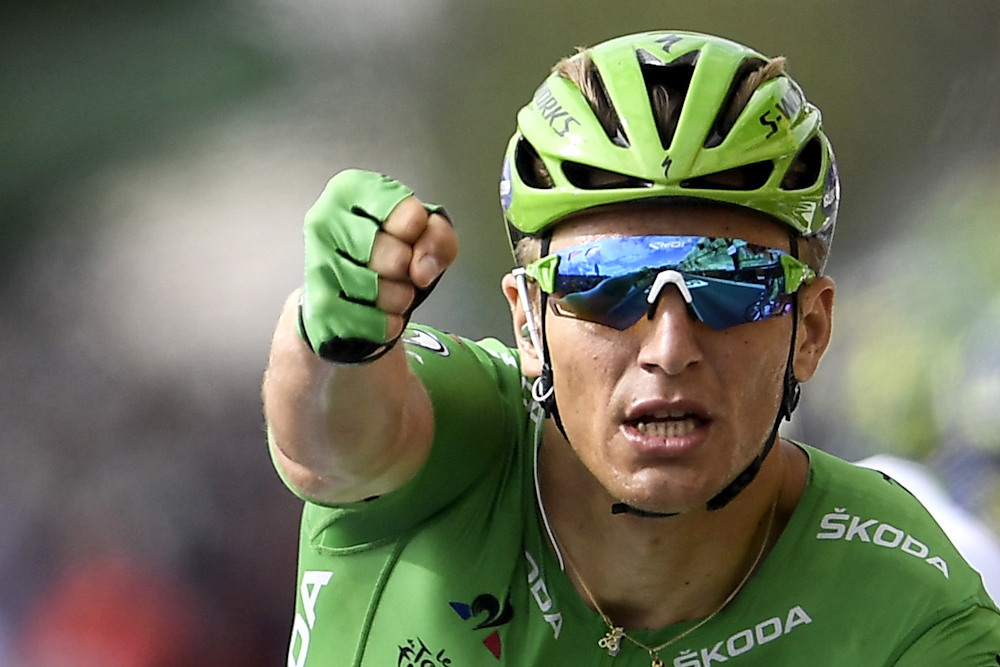
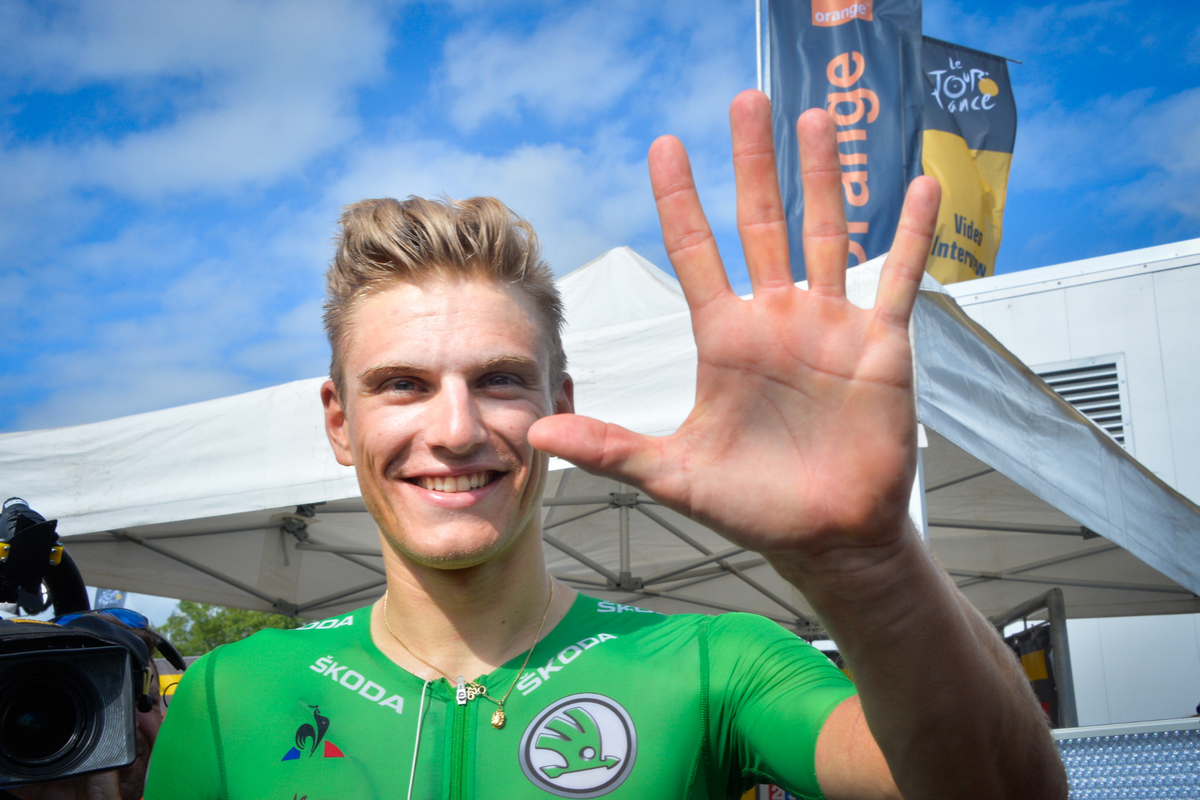
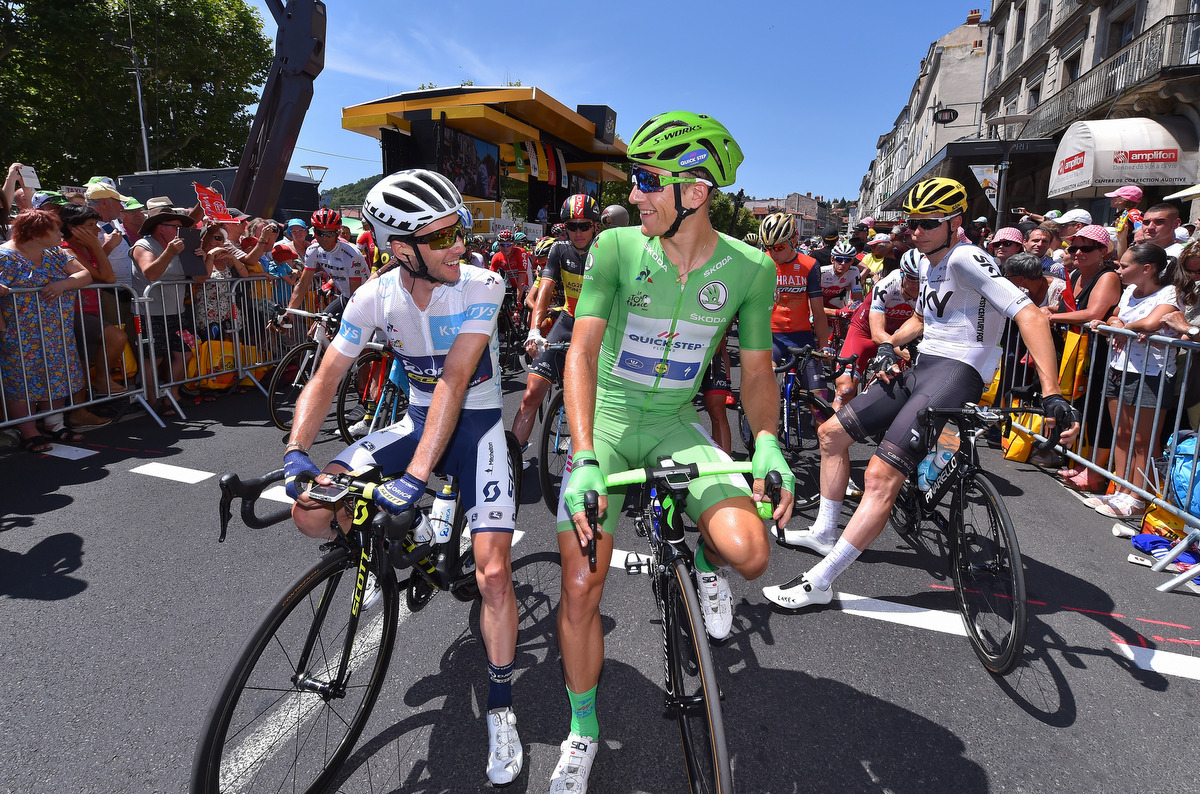
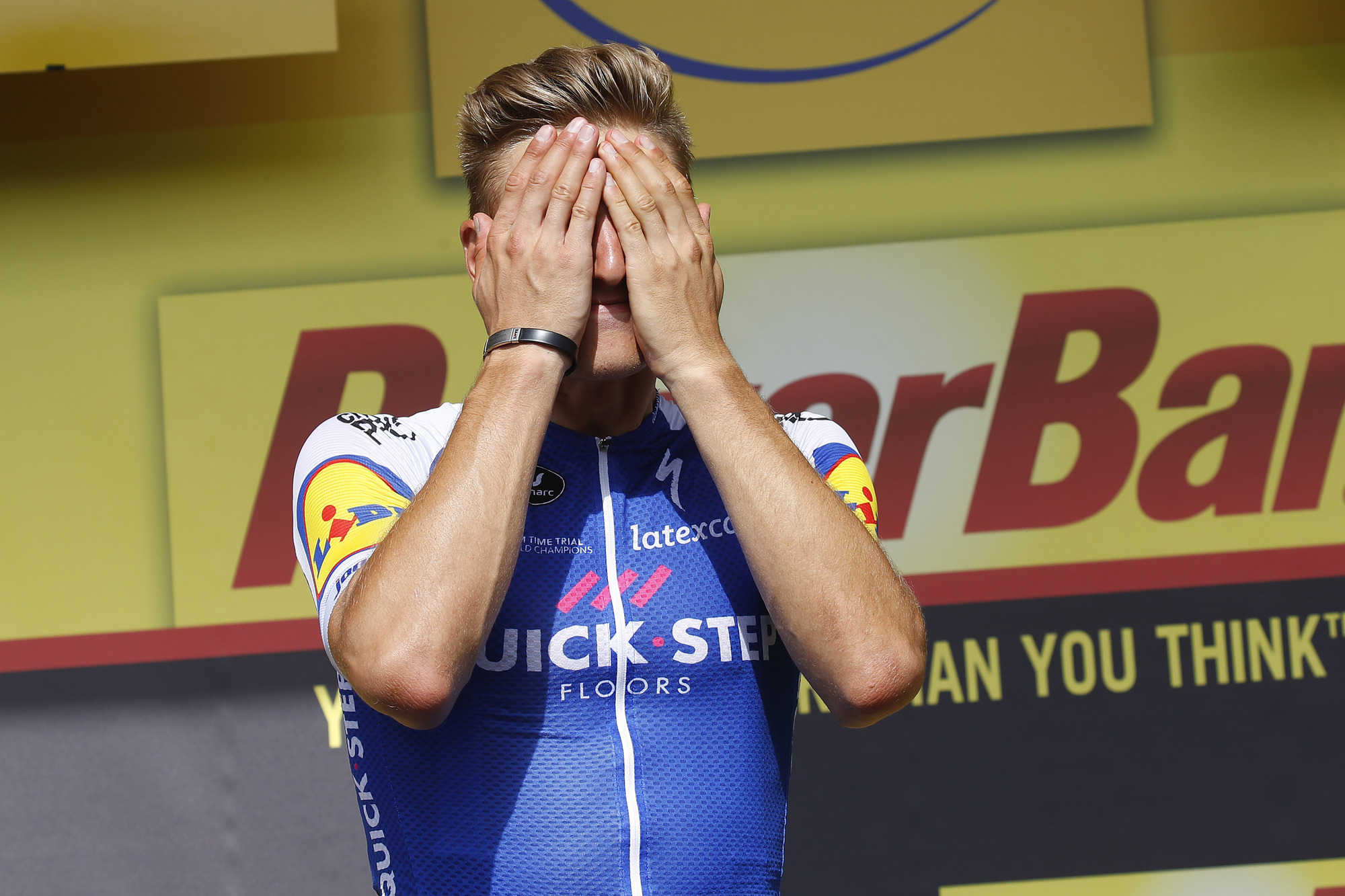
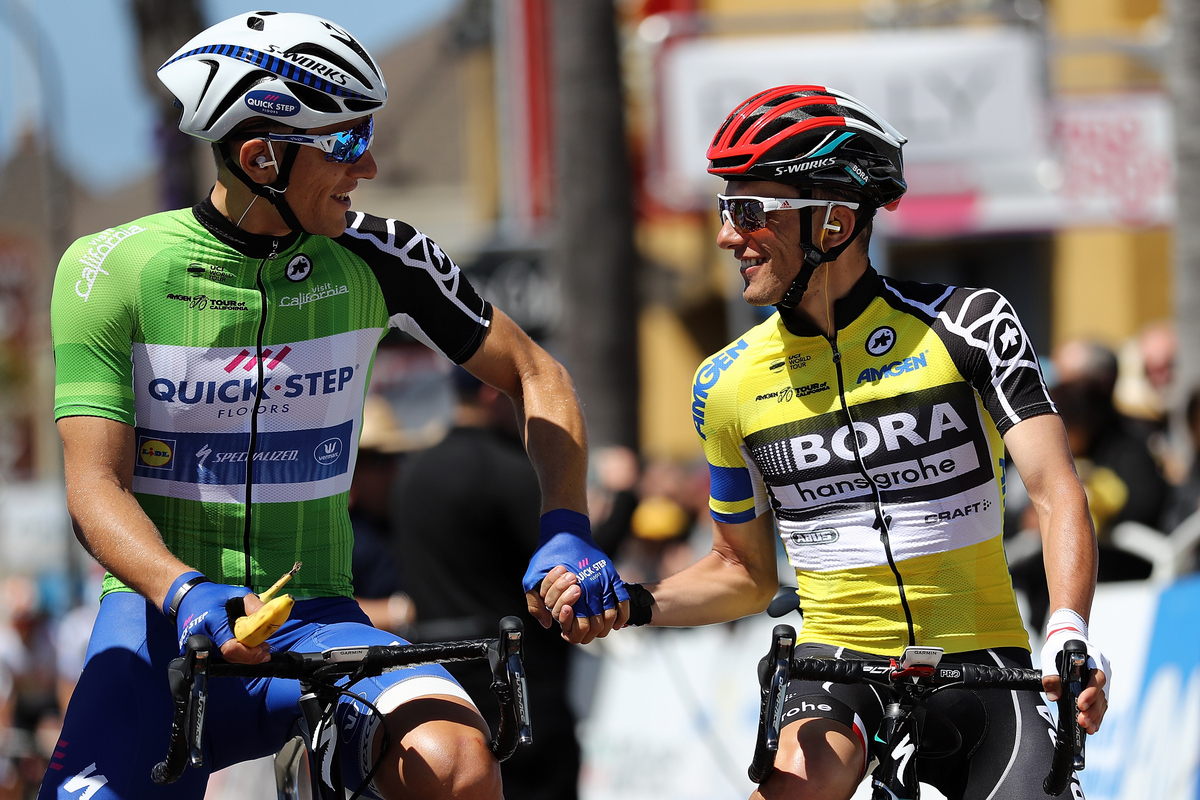
On an evening during the BinckBank Tour, Marcel Kittel sat down opposite Patrick Lefevere and delivered the news that he would be leaving Quick-Step Floors for Katusha-Alpecin.
Kittel: It has been a long road to return to this level
Latest transfer deals from the Tour de France
Kristoff reaches deal to join UAE Team Emirates
Transfer mechanics: Ian Boswell to Katusha-Alpecin
Marcel Kittel signs two-year deal with Katusha Alpecin
Viviani: Quick-Step Floors offer 'a train that only passes once'
Lefevere saw that the German's mind had been made up, and accepted his decision. Kittel would leave after two years of success and start afresh.
Speculation of Kittel's departure from Quick-Step to Katusha first surfaced after the Giro d'Italia in May when Fernando Gaviria claimed four stage wins for Quick-Step on his Grand Tour debut. The Colombian's success may have enhanced his own stature within Lefevere's squad but it would also become one of many factors that led to Kittel's transfer.
"It wasn't about the Giro. No that's really not true. The most important thing for me was to concentrate on myself," Kittel tells Cyclingnews.
"I wanted to go my own way and race as well as possible. In the last two years, of course, Fernando has shown his talent and it's pretty clear where he wants to go. For me, there are no hard feelings about those ambitions because they were the same when I was his age."
So what were the other elements that led to Kittel's move? In May, Lefevere was still without the necessary funding to guarantee his riders contracts beyond 2017. The experienced team boss has always managed to pull a rabbit out of the hat when it comes to securing sponsorship but speculation that he himself was looking at retirement didn't help the situation.
At the same time, Katusha had grown increasingly frustrated with Alexander Kristoff's performances. They had re-signed the Norwegian on a huge deal two years ago but the 2017 Classics campaign failed to yield a major success. When Kristoff revealed that the team had even questioned his weight, it was clear that all was not well. And so the call came to sign Kittel, but according to the German, talks did not begin until the summer.
Get The Leadout Newsletter
The latest race content, interviews, features, reviews and expert buying guides, direct to your inbox!
"The important moment was the Tour and that's when the negotiations started," Kittel says.
"Nothing happened really before the Tour. Until that point everyone was hesitating so for me there was no real pressure. I was focused on the race and knew that if I won there then everything else would go smooth and that the interest would come."
Kittel embarked on a hugely rewarding Tour de France, winning five stages and holding onto the green jersey until a crash in the final week put him on a flight home to Germany. It was during a week of post-Tour contemplation when Kittel decided to finally sign.
"When I came back from the Tour I had a moment to decide and to relax. Then I took a decision," he confirms.
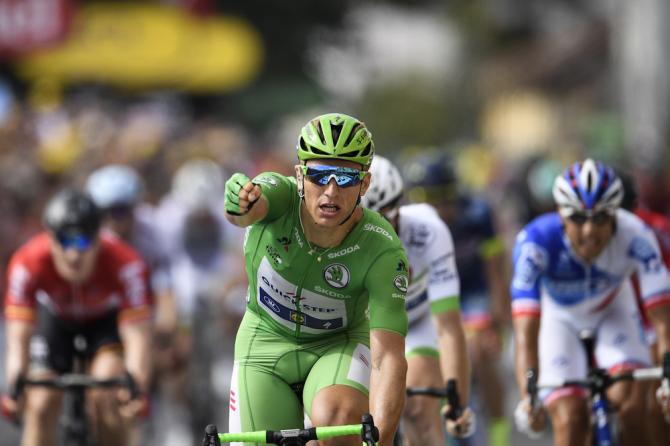
Photo: Getty Images Sport
To be clear there were other options on the table and by the time the Tour had swung around Lefevere had found additional funding and begun to re-sign his star riders. Julian Alaphilippe, Philippe Gilbert, Bob Jungels and Gaviria all extended their deals. Despite a healthier bank balance, Lefevere still had to be picky about the riders he kept and those he was willing to see leave. Gilbert, Alaphilippe, Jungels and Gaviria were all originally signed on moderate but fair contracts. All four have had successful seasons and duly asked for more money when arriving at the negotiating table. That said, Lefevere was still keen on keeping Kittel.
During the Tour, Lefevere and Kittel had briefly talked, with the German asking to postpone any talk of contracts until the race reached Paris. Lefevere agreed, perhaps aware of the delicate situation, and that his leading sprinter needed little in the way of additional pressure. Kittel never made it to Paris, however, and by the time the rider and his boss saw each other again, it was only for Kittel to inform him that he was moving on.
"I had a great offer from Patrick. Like in 2015 there was a good feeling for each other but with Katusha, there was the chance to concentrate on my goals. That was the most important thing," Kittel says.
"Over the last years, I've always had fair offers. It was always a good level. That's important to say. Patrick knows the price of a rider and he's ready to pay it. When I came in 2015 he made me a very fair offer. He said, 'This is what a guy like you should earn and that's what I'm going to pay you'. He wasn't looking for a cheap rider or to take advantage after I was sick. I had other options but for me, the most important thing wasn't about money."
To be clear, Kittel's motives were not entirely financial. Aware that Kristoff was leaving Katusha, the Russian team became a hugely enticing prospect. With the Norwegian leaving they already had a ready-made lead-out train waiting for Kittel to inherit. The set-up at the Russian team looked professional and there was a German tinge to the squad with several riders involved and Alpecin as a co-sponsor.
"But really I just wanted to have all the things sorted from a sporting perspective. Once I looked for all that the group of teams really reduced," Kittel says.
The fact that Gaviria would be hunting for a Tour de France spot only helped Kittel over the line.
"It's logical that I want to be 'the sprinter' who gets the full support. Everyone was following the rumours of Kristoff and it was obvious he would leave. That made sense for me," Kittel says.
"For me now was a moment to also make a decision. I had the chance to decide my own future and it was important to learn from the experience of 2015 and try and keep my sprinting goals and Tour goals intact."
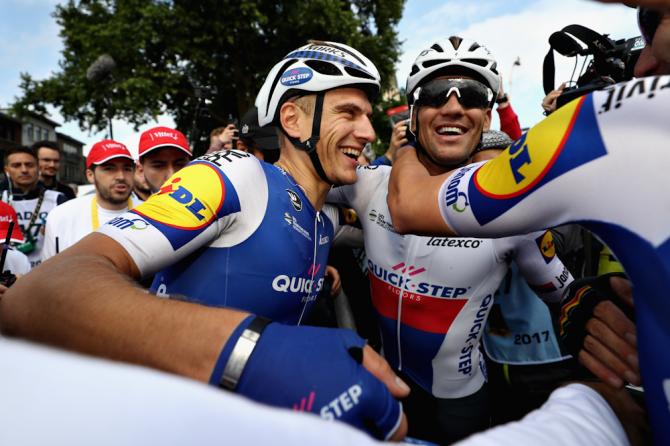
There were several elements to the negotiations with Katusha, one of which was whether Kittel could bring lead-out man Fabio Sabatini with him. The Italian has built a solid working relationship with Kittel and was key in his Tour success this year. In the end, Lefevere fought to keep Sabatini, a move that Kittel reluctantly accepted.
"When you look to the Tour we saw a lot of Katusha. That's one of the reasons why I think the move is good for me. And I think that I will be very happy to work with those guys. With Politt, Zabel, and Haller. We speak German and there's a German touch to the team that I'm really looking forward to it. For me, there's not that much need to change anything. The ambition is always to get the best lead-out in front of me but as soon as start working we'll get a feeling for each other. There's no doubt that we can race well together and I'm confident in the team," Kittel says.
"It's good to see that Sabatini has another contract with Quick-Step but I did try to bring him with me. It didn't work out, and of course, that's something that Sabatini and I took in a professional way. We knew that if there was a chance, we would try for it. We had a nice collaboration over the last two years but he's happy to stay at Quick-Step and I'm happy for him."
Once Kittel broke the news to Lefevere personally, he asked if he could address the team in full. He wanted to say his goodbyes in person and thank them for their support.
"I did that because I wanted the whole team and Patrick to know in person how much I appreciated them. They really treated me well and it's a great experience. I'm proud to have been part of the team," Kittel says.
"Patrick was disappointed. He was always honest with me, at all times, and that's something I really like about him. We could both tell each other what we really thought, even when it wasn't very nice. I think at the end of the day both parties will come out of it in a good way."
At this point, it looks as though all parties have come out of this well. Lefevere may have lost a leading sprinter but he has invested his capital in other areas and brought in Elia Viviani to help cover Kittel's departure. Katusha-Alpecin has let Kristoff go but replaced him with a rider who consistently wins between fifteen and twenty races a season – a factor they have lacked in the past - and Kittel has what he wants: a dedicated team built around him and a place where he is the top dog in terms of sprinting.
"They're not expecting crazy things from me. The management are understanding and they are giving me the chance to continue how I'm used to work. I want to use that atmosphere to connect with my new teammates when the time comes and then make plans for 2018," Kittel says. "I think it will be a similar plan to what I've done in 2016 and 2017. And I'm happy to have no more worries about my hair products anymore."
Daniel Benson was the Editor in Chief at Cyclingnews.com between 2008 and 2022. Based in the UK, he joined the Cyclingnews team in 2008 as the site's first UK-based Managing Editor. In that time, he reported on over a dozen editions of the Tour de France, several World Championships, the Tour Down Under, Spring Classics, and the London 2012 Olympic Games. With the help of the excellent editorial team, he ran the coverage on Cyclingnews and has interviewed leading figures in the sport including UCI Presidents and Tour de France winners.
